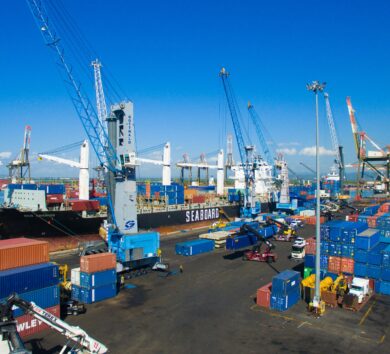

The easing of lockdown restrictions in the United Kingdom (UK) has aided manufacturing growth in the country last month to accelerate to its highest level in a decade.
This came about as orders jumped in anticipation of looser lockdown restrictions. The growth in UK manufacturing can be seen in the IHS Markit’s Purchasing Managers Index (PMI), which climbed to 58.9 last month outpacing estimates earlier put forward by economist.
The spike in manufacturing was the strongest reading since 2011, as factory output expanded at the quickest pace since November 2020, which was the 10th consecutive month of gains. These growth figures have been welcomed by the Treasury and Bank of England, which adds credibility to their optimism that the economy will bounce back strongly once the pandemic eases.

Rob Dobson, director at IHS Markit, said the spike in manufacturing has been underpinned by the vaccine roll-out and clients’ preparations for the loosening of lockdown restrictions.
“Many expect this process to be supportive during the year ahead. The longer these inflationary and supply-chain worries persist, the greater the potential to curb the strength of the upturn,” Dobson remarked.
“The domestic market remained the prime source of new orders, as companies reported that the vaccine roll-out and clients’ preparations for the loosening of lockdown restrictions underpinned the expansion.”
Rob Dobson, director at IHS Markit
He contended that “signs of Spring have appeared in the UK manufacturing sector, with the PMI hitting its highest level in a decade… . Growth of output, order books and employment all gathered momentum and optimism about the year ahead improved further”.
Dobson argued that “the domestic market remained the prime source of new orders, as companies reported that the vaccine roll-out and clients’ preparations for the loosening of lockdown restrictions underpinned the expansion”.
He said the growth signals a remarkable turnaround for the sector after a Brexit-driven slump over Christmas.

Dobson added that international orders remained weak and manufacturers continued to face supply chain issues associated with new paperwork at the borders. Many businesses are largely limited in their ability to respond to a modest increase in orders.
As the economy rebounds, a sustained surge in demand for freight services and capacity will remain a challenge for months to come. This is due to the recent blockage of the Suez Canal — one of the world’s busiest international trade routes — may lead to further delays.
Economic data shows that employment rose, supported the highest levels of business sentiment in seven years. The data also shows that supply chain issues constrained growth, pushing up both input and output prices at by the most since early 2017.







Comments